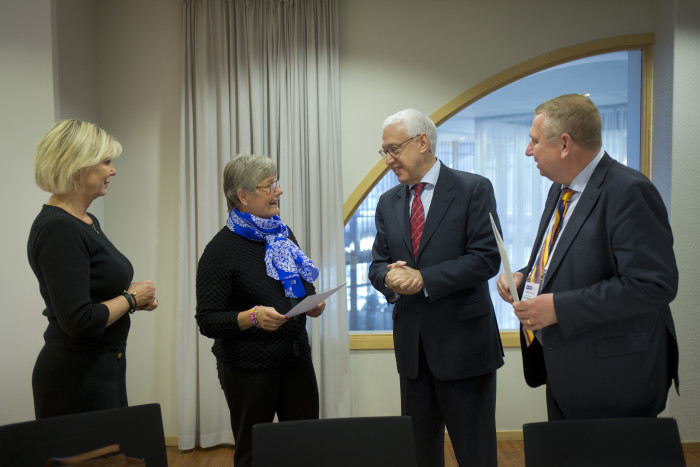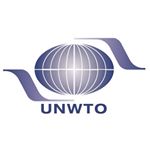

Swedish private sector commits to the UNWTO Global Code of Ethics for Tourism
Visita and Svensk Turism AB have become the latest private sector signatories to the UNWTO Global Code of Ethics. The signature of the commitment to the Code took place on the occasion of Sweden’s Hospitality Industry Congress, held in Gothenburg (17 March 2016).
By adhering to the Code, the private sector signatories commit to respect its principles; to promote the Code among its partners, providers, staff and clients, making sure that its provisions are known and respected as far and wide as possible; and to report to the World Committee on Tourism Ethics on the measures taken to implement the Code.
As stated by Márcio Favilla, UNWTO Executive Director for Competitiveness, External Relations and Partnerships, on the occasion of the signature “tourism’s exponential growth in recent years comes with increased responsibility for all and this is why today’s commitment is so important; the UNWTO Global Code of Ethics constitutes the most efficient tool to channel corporate responsibility commitments towards our society and communities.”
“Travel to Sweden is becoming more and more popular among tourists from Europe as well as for those traveling from long-haul markets such as Japan, China, India, Russia and the USA. Cooperation with UNWTO highlights Sweden’s commitment to being a responsible, sustainable and attractive destination”, said Maud Olofsson President of Visita. Eva Östling, CEO of Visita, added that “tourism is one of Sweden’s most important industries with an export value of 97 billion SEK. But the potential is much higher. The goal is to double this in ten years”.
Magnus Nilsson, President of Svenk Turism said “now we’ll insert the UNWTO Global Code of Ethics for Tourism in the Swedish tourist industry’s national strategy. With a focus on sustainability, we will work towards ensuring that by 2020 Sweden is the natural destination for the global traveler”.
The UNWTO Global Code of Ethics for Tourism is a comprehensive set of principles designed to guide key-players in tourism development. Addressed to governments, the travel industry, communities and tourists alike, it aims to help maximise the sector’s benefits while minimising its potentially negative impact on the environment, cultural heritage and societies across the globe. Adopted in 1999 by the General Assembly of the World Tourism Organization it was acknowledged by the United Nations in 2001.
The relevance that the private sector can have in promoting a more responsible tourism sector, lead UNWTO to develop since 2011 the Private Sector Commitment to the Code. As of January 2016, 451companies and associations from 64 countries –from airlines and hotels, to tour operators and associations– have joined the commitment to uphold ethical standards and ensure the implementation of the Code in their operations.
UNWTO deeply saddened by FlyDubai crash
MADRID, Spain – UNWTO is deeply saddened by the news of the accident of Flydubai flight FZ981 in the southern Russian city of Rostov-on-Don. On behalf of the international tourism community, UNWTO expresses its sympathies and condolences to the families and friends of the victims.
“It was with great sorrow that we heard the news of this tragedy and express our heartfelt solidarity with the families and friends of the passengers at this most difficult time”, said UNWTO Secretary-General, Taleb Rifa

UNWTO is deeply shocked by the tragic attack perpetrated in Istanbul, Turkey.
MADRID, Spain – On behalf of the entire international tourism community, UNWTO expresses its heartfelt condolences to the families and friends of the victims and to the Turkish people in this difficult moment.
“On behalf of the entire international tourism community, UNWTO conveys its heartfelt condolences to the families and friends of the victims and expresses its full solidarity with the people and the Government of Turkey” said UNWTO Secretary-General, Taleb Rifai.
“This tragic event reminds us once more that we are facing a global threat that requires a firm and coordinated response by all governments and the international community. Turkey is a leading tourism destination and we are confident it will continue to be so; it is time to stand by Turkey in facing this challenge” he added.
